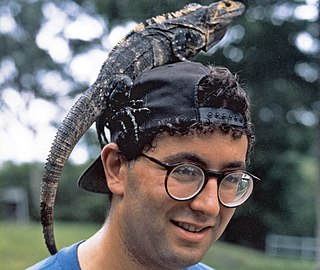A Quote by Terry Teachout
The papers that flourish will be papers that serve a national audience. Papers that have figured out how to make the transition to the electronic platform that aren't simply providing a duplicate experience of the words on paper experience, but are doing something that arises organically from the new electronic medium. It's really just a matter of finding the right platforms for the way people want to read newspapers. I mean, maybe it will be the iPhone. But one way or another, newspapers on paper are just not really going to exist to any significant degree within a decade.
Quote Topics
Another
Any
Arises
Audience
Decade
Degree
Doing
Duplicate
Electronic
Exist
Experience
Figured
Finding
Flourish
Going
How
iPhone
Just
Make
Matter
Maybe
Mean
Medium
National
New
Newspapers
One Way
Organically
Out
Paper
Papers
People
Platform
Platforms
Providing
Read
Really
Right
Serve
Significant
Simply
Something
Transition
Want
Way
Will
Within
Words
Words On Paper
Related Quotes
In America, there's a very long tradition of a comic strip that comes in newspapers, which is not true all over the world. To sell papers, they put color comics in. It's worked, up until now. Now these papers can't afford it. They always had minuscule ad budgets, and now the things which people probably read these papers for are gone.
I would say that the Pentagon Papers case of 1971 - in which the government tried to block the 'The New York Times' and 'The Washington Post' and other newspapers from publishing papers that they obtained from a secret study of how we got involved in the war in Vietnam - that is probably the most important case.
That's the misconceptions that people have, that Chuck Berry went to jail. They're just totally wrong. It might have said something in the large papers in the bigger city headlines and things. But, you take a look at any of the local papers, and you will see that I was acquitted. I never went to jail.
I think blogging and the ability to instantaneously respond to news items has changed the way we approach all media. We're seeing people talking back to columnists, and going much further in the sexual realm than most papers, even alternative weeklies, will publish. I'm surprised more papers aren't having people do what you're doing with an online only column, and to be honest, I read almost all the media I do read online, and plenty of other people do, too, so I don't know what's stopping them.
I really love doing nothing. I really love just being at home and taking a couple of days, you know, doing nothing. You know what I mean? Just getting up, being around the house, going outside the back yard, coming back in; I really like to do nothing because I travel a lot. There's a lot of travelling. There's a lot of on the phone all the time. There's a lot of looking at papers and reading things and so you don't want to read magazines and you don't want to do anything; you don't want to read books, you just want to just kind of shut down a little bit.


































